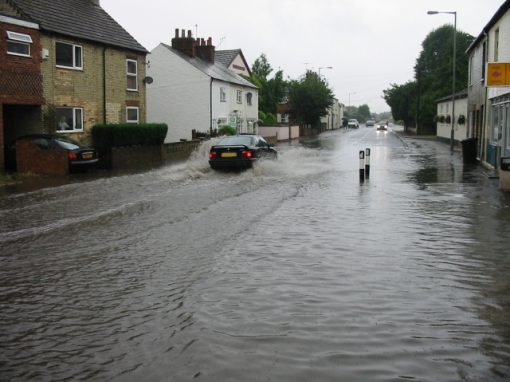From Theory to Practice: a Disaster Simulation Exercise
By Ben Walkling, student on the MSc International Disaster Management programme
Before the start of the second semester, Master’s students on HCRI’s International Disaster Management Programme undertook a simulation exercise run by David Powell, the former Head of Emergency Planning & Business Continuity for Lincolnshire County Council. During a two day workshop, we explored the planning and response to a large scale coastal flooding event over a five day narrative period, starting from a low probability weather warning up to the flooding occurring and into the initial recovery stages. This involved us discussing complex issues such as when to raise the alarm, start evacuations, and how to deal with a dynamic disaster situation when communication becomes difficult or is completely lost. We discussed these issues as groups, dealing with specific tasks that David Powell had faced whilst preparing for a similar event, giving a real-life feeling to the simulation and the impacts of our decisions.

Image: a UK flash flood, 2004. Credit: Malcolm Campbell, Wikimedia Commons
Through being part of the simulation exercise I gained an appreciation of the multitude of factors and issues planners and responders need to deal with during all stages of the disaster cycle, even when the range of risk is expected such as, in our case, the height of the predicted tidal surge. The challenges put to us included how to deal with the media and spontaneous volunteers. Both require an appropriate response to ensure best use of resources available to responders. It was useful to practice communication skills, such as discussing and coming to consensual decisions between a group of individuals with different backgrounds and perspectives. This was especially challenging but intriguing when considering the evacuation of Elderly Care Homes as members of my group felt differently about the practicality of this endeavour. The simulation also demonstrated how effective and informed planning can ensure that even when communications between organisations are lost, responses can be efficient.
The simulation was a great chance to relate many of the concepts and issues that we had been discussing in classes to a ‘real-life’ management scenario. We drew on our understanding of key disaster management concepts, such as vulnerability whilst deciding on effective responses for areas that were most likely to be flooded, or capacity when discussing ours and others’ ability to respond. The simulation exercise gave me a chance to experience the management process of a UK-based event. This has inspired me to also consider a career in a UK-based disaster management role and the skills developed from the simulation will be useful to demonstrate team work. Maybe in the future, I will be part of a team planning and responding to an event.
Ben Walkling


0 Comments